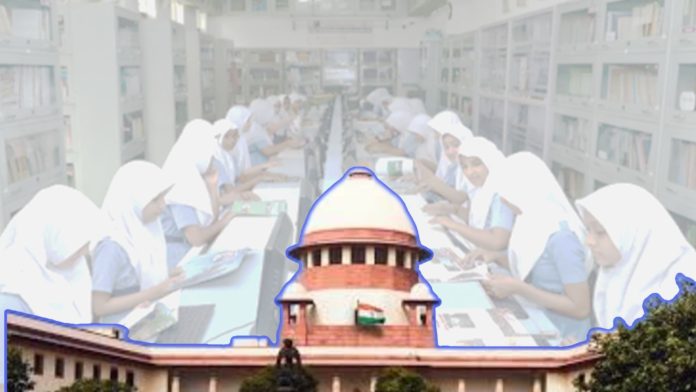New Delhi: The Supreme Court has questioned the correctness of its 2014 ruling in the Pramati Educational & Cultural Trust case, which had exempted minority schools from the Right of Children to Free and Compulsory Education Act, 2009.
A Bench of Justice Dipankar Datta and Justice Augustine George Masih observed that exempting both aided and unaided minority institutions from the RTE Act may not have been the right approach. The judges suggested that instead of a blanket exemption, Section 12(1)(c) of the Act could have been applied specifically to children from weaker sections within the same minority community. This section mandates 25 percent reservation in schools for children from disadvantaged backgrounds.
The court referred four constitutional issues to Chief Justice of India B.R. Gavai for directions, including whether the Pramati judgment requires reconsideration. The Bench asked whether Section 12(1)(c) infringes on Article 30, which protects the rights of minorities to establish and run institutions, and whether it can be preserved by a narrower interpretation.
The ruling also addressed teacher eligibility. It directed that teachers with less than five years of service left may continue without passing the Teachers’ Eligibility Test, but will not qualify for promotions. Those with more than five years remaining must clear the test within two years to retain their jobs.
This is the first time the Supreme Court has expressed doubts over Pramati. The Chief Justice will now decide whether a larger Bench should review the matter.




